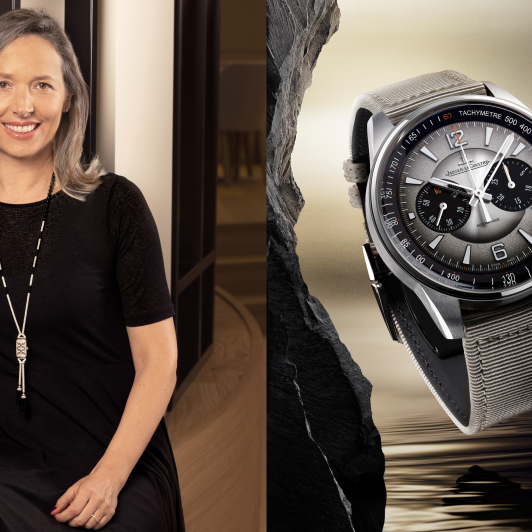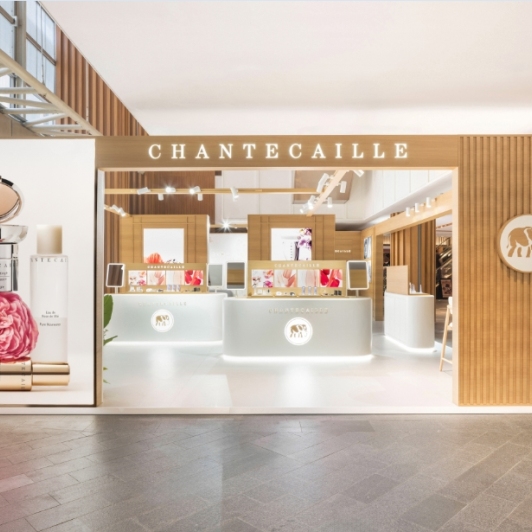Brand renovation continue in Beijing’s Sanlitun, with the recent rise of a Haussmannian building in the southern core area. Each morning, people queue up to check in, and many young people emerging from the building are often seen holding coffee cups in black and white.
This is the first self-operated café globally by the French designer brand AMI, and it can be considered one of the hottest check-in spots in Beijing recently. This café also serves as the main venue for AMI’s pop-up events in Beijing, Shanghai, and Chengdu.
The AMI Beijing Sanlitun pop-up café is modeled after the iconic Parisian cafés, featuring elements such as the Morris Column, a street sign with the brand’s headquarters address “9, place des Victoires”, simulated cobblestone pavements, black and white striped table and chair designs, and sunshades, all creating an atmosphere akin to the streets of Paris.

From November 10 to December 8, the AMI pop-up café simultaneously operates in three cities, offering classic French coffee. The Beijing space showcases the brand’s Autumn/Winter 2023 collection.
Paris, the birthplace of the brand, has always been a source of inspiration for AMI. Upon entering China, AMI continues to explore the local cultural elements unique to different Chinese cities.
On the opening day of the Beijing pop-up store, the AMI Paris headquarters team also attended. Discussing the Parisian characteristics of the pop-up store, AMI’s Asia Pacific General Manager Camille Maquin revealed some new plans to Luxeplace.com, such as incorporating local elements like fans and tile elements in new stores in Suzhou and Guangzhou…
Note: Camille Maquin has led AMI’s omnichannel business development in the Asia Pacific region, especially in China, over the past three years, expanding from 2 stores to more than 20 and establishing 5 e-commerce channels.
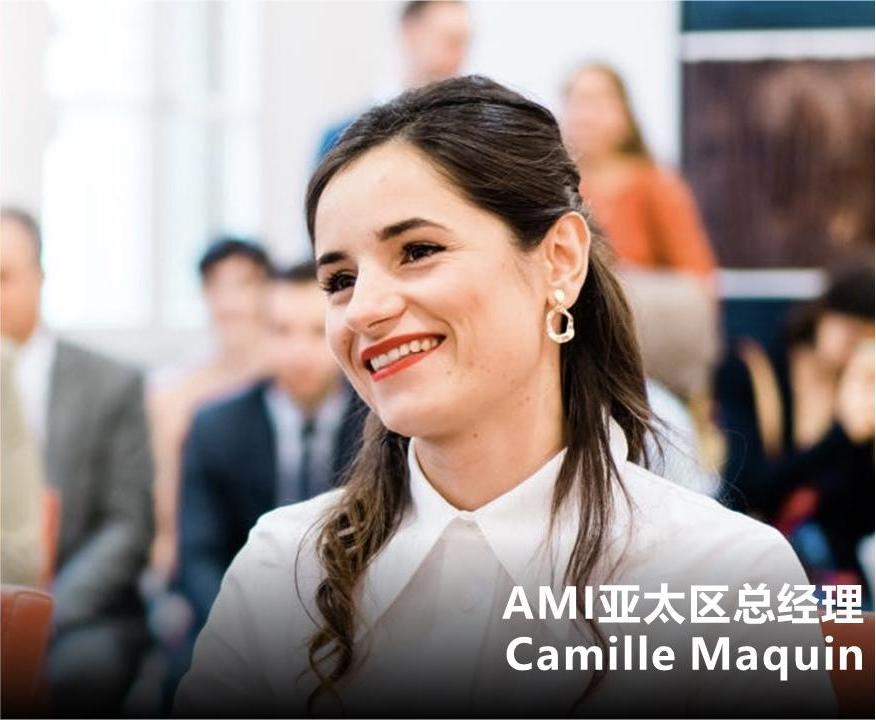
“We are striving to deepen our brand presence in China”
The culture of exquisite coffee is spreading in China. “I myself am a loyal fan of local coffee shops, and we want to participate in China’s coffee trend with our distinctive touch,” Maquin tells Luxeplace.com.
From the exterior walls of the café to each coffee cup, the iconic “Ami de Cœur” (Heart-shaped A) logo of the AMI brand occupies a prominent position. Many consumers are drawn to buy a limited-edition coffee specifically for this classic logo.
The “Ami de Cœur” logo, meaning ‘heartfelt friend,’ symbolizes the essence of the AMI café. Camille Maquin says, “We want to create places to gather with your friends or family, have a good time, and enjoy delicious French pastries.”

The AMI pop-up café in Beijing’s Sanlitun
Luxeplace.com: In recent years, what changes have you observed in Chinese consumers? How does AMI respond to these changes?
Camille Maquin: Chinese consumers are very interesting. Their knowledge of fashion is increasing, and they are very sophisticated, in my view, even more so than European consumers. For them, quality and long-term value matter more than ever.
They are also sensitive to what I call the “brand density,” meaning the depth of the brand universe and its ability to resonate locally. They need to understand a brand beyond the product: what does this brand stand for, and how does that relate to me?
We are working hard to deepen our “brand density” in China, meaning sharing our brand world beyond the products and continuing to create attractive moments among consumers and communities.
Luxeplace.com: If you could describe AMI in three words, what would they be?
Camille Maquin: Elegance, Paris, fAMIly.
We aim at creating beautiful collections with this typical French nonchalance and effortless chic, however, with a unique brand culture that is genuinely generous and engaging. It is no coincidence that AMI means “friend” in French.
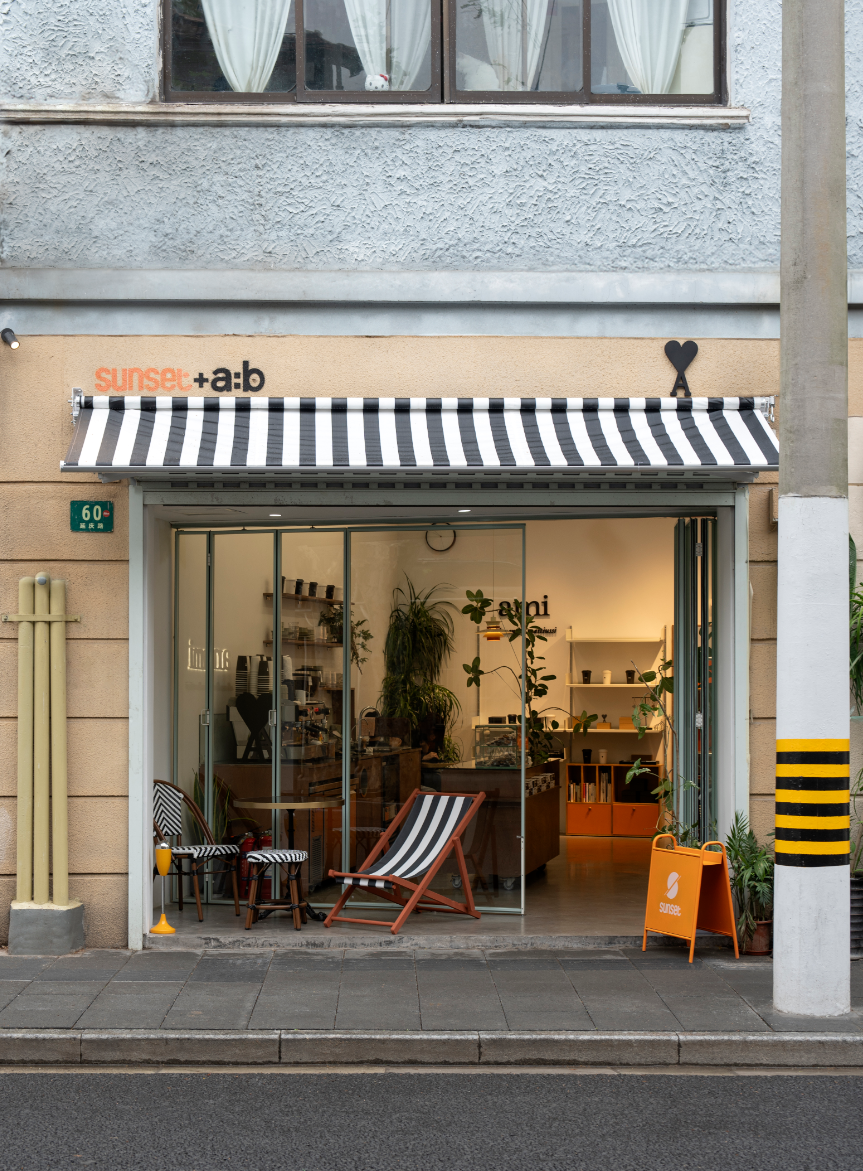
AMI’s collaboration with Shanghai’s sunset+a:b for a pop-up café
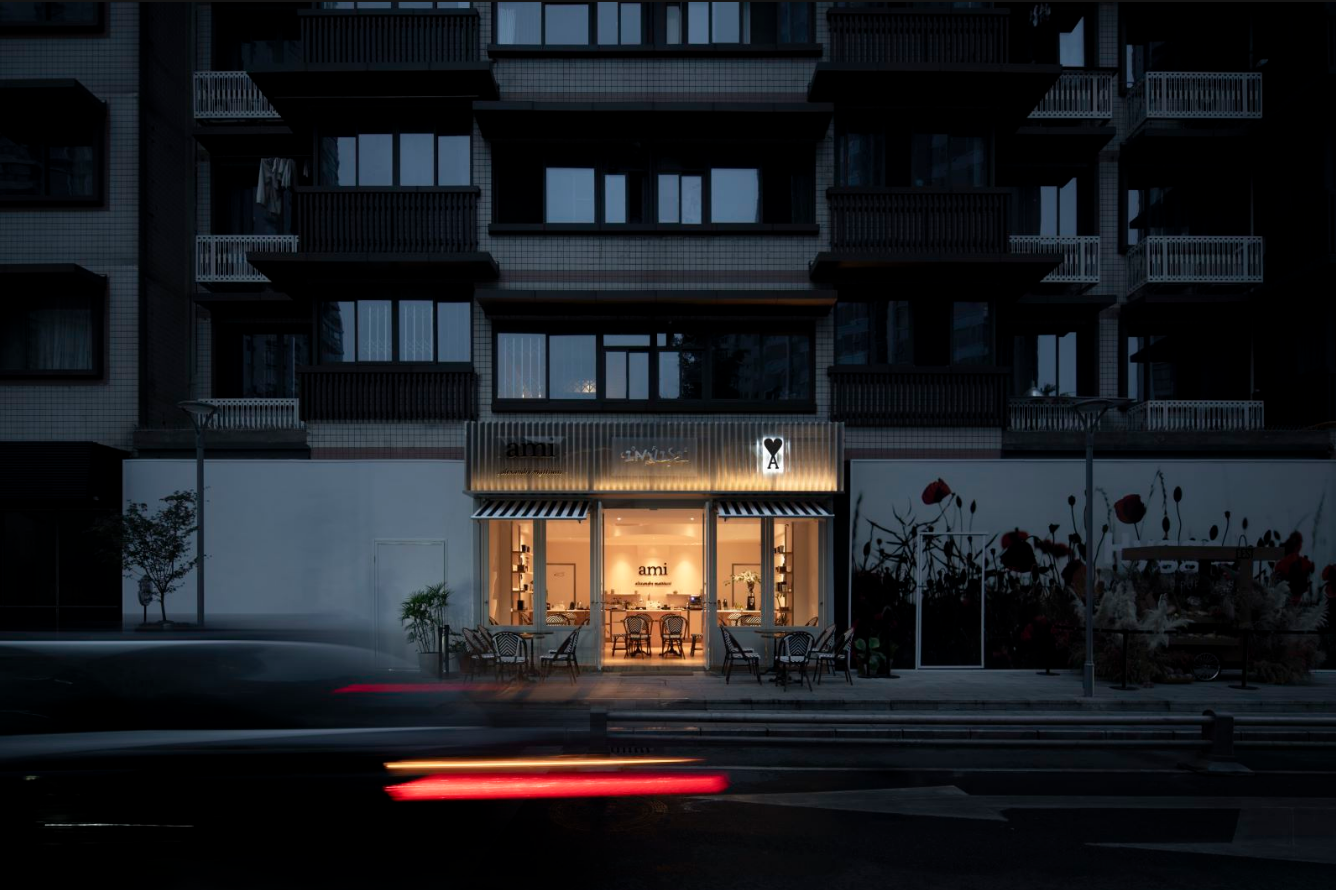
Collaboration with Chengdu’s INVISI coffee shop for another pop-up café
From Suzhou’s Fans to Guangzhou’s Tiles,
New Stores to Integrate Local Elements
In China, AMI is showcasing the Parisian charm that the brand represents while also drawing inspiration from Chinese local culture to bridge the psychological gap with Chinese consumers.
Along with the pop-up events, AMI launched an exclusive set of emojis “AMI PARIS Meets Beijing” online, blending the cultures of the two cities.
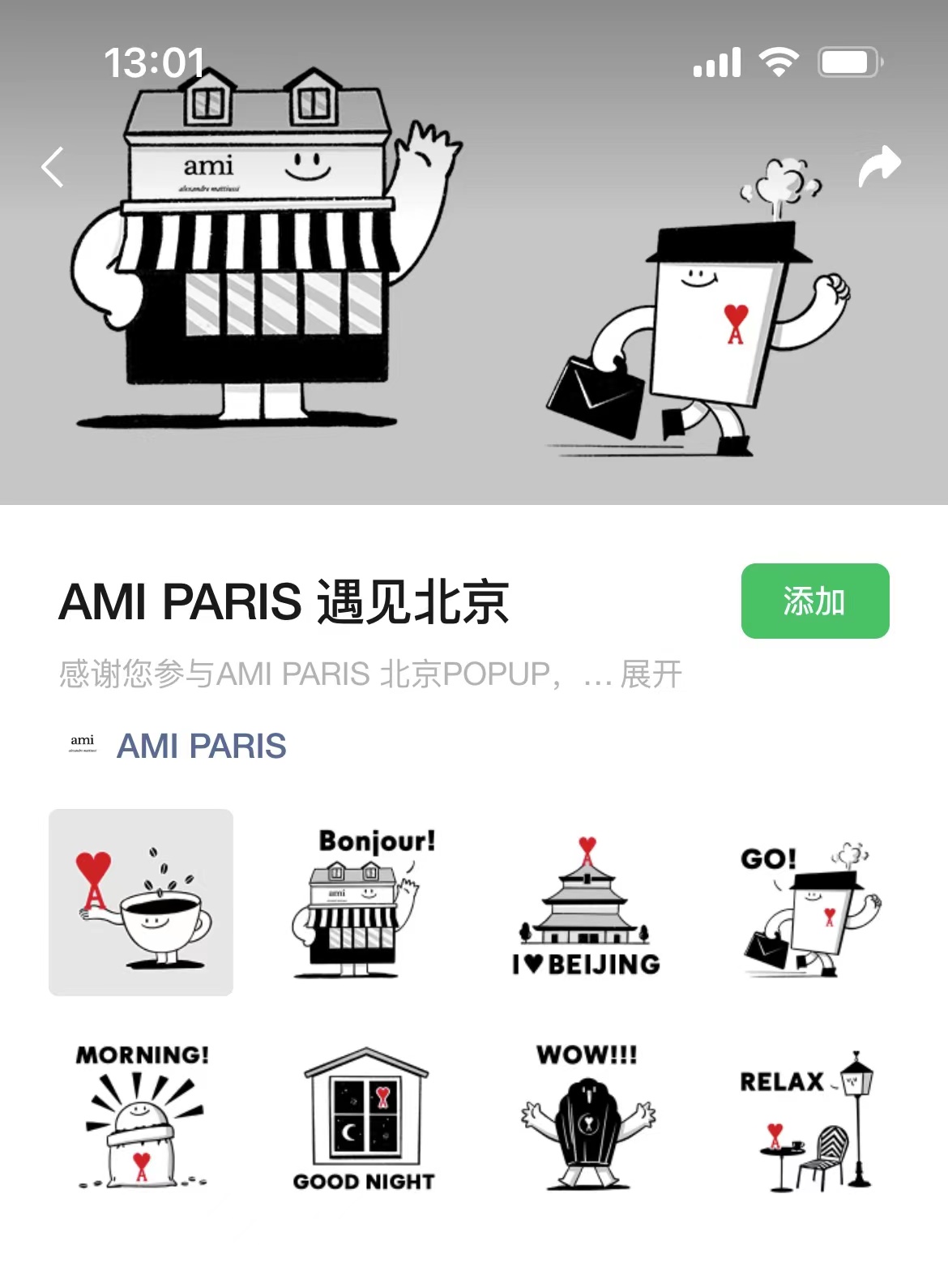
AMI also hosted a celebration party in Hanlin Academy, a typical Chinese-style building in Beijing’s Hutongs, incorporating Chinese elements like sugar-coated haws art experience and pipa performances. Celebrities like singer and actress Miriam Yeung, actor Greg Hsu, and singer Jason Yu appeared at the event.
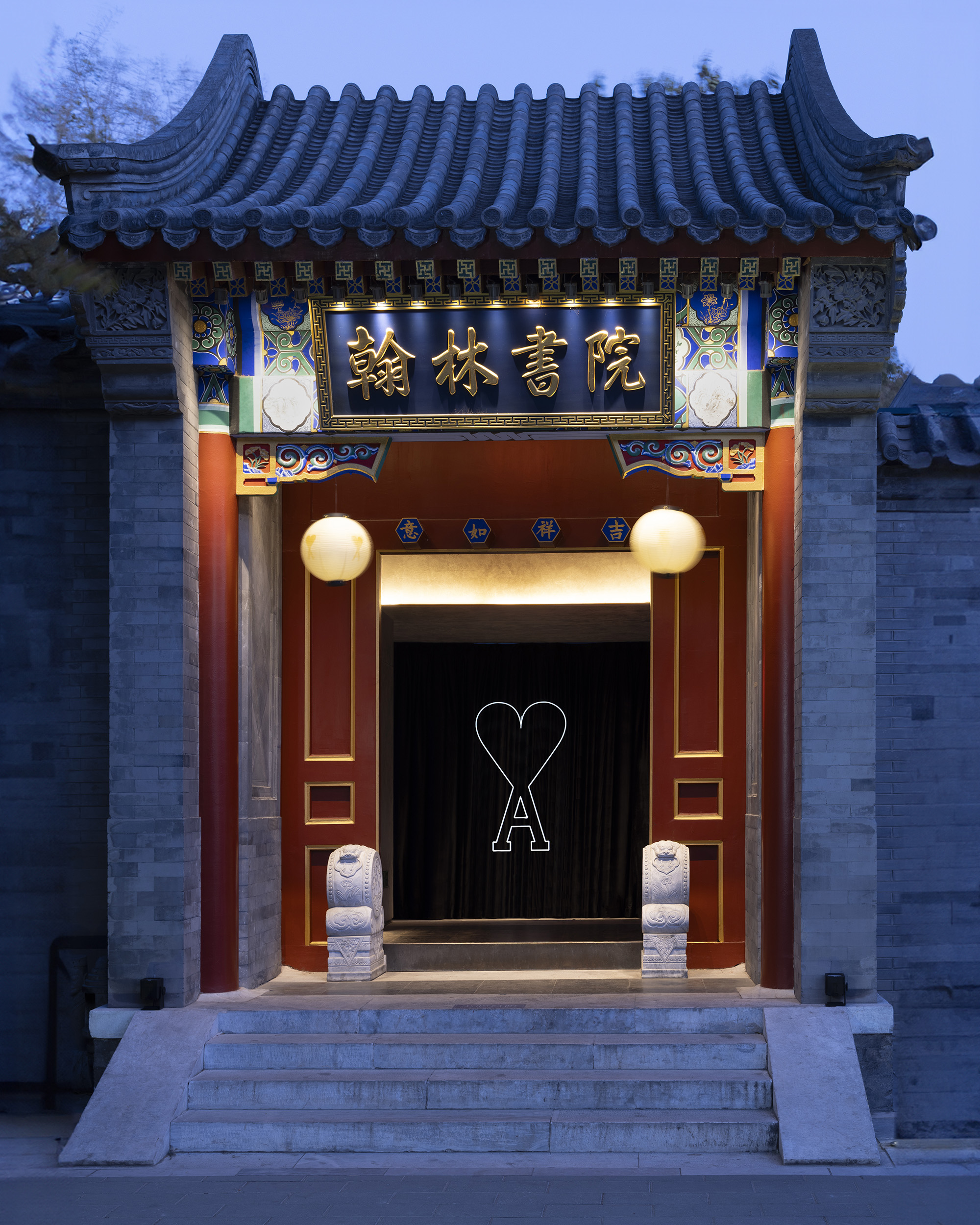
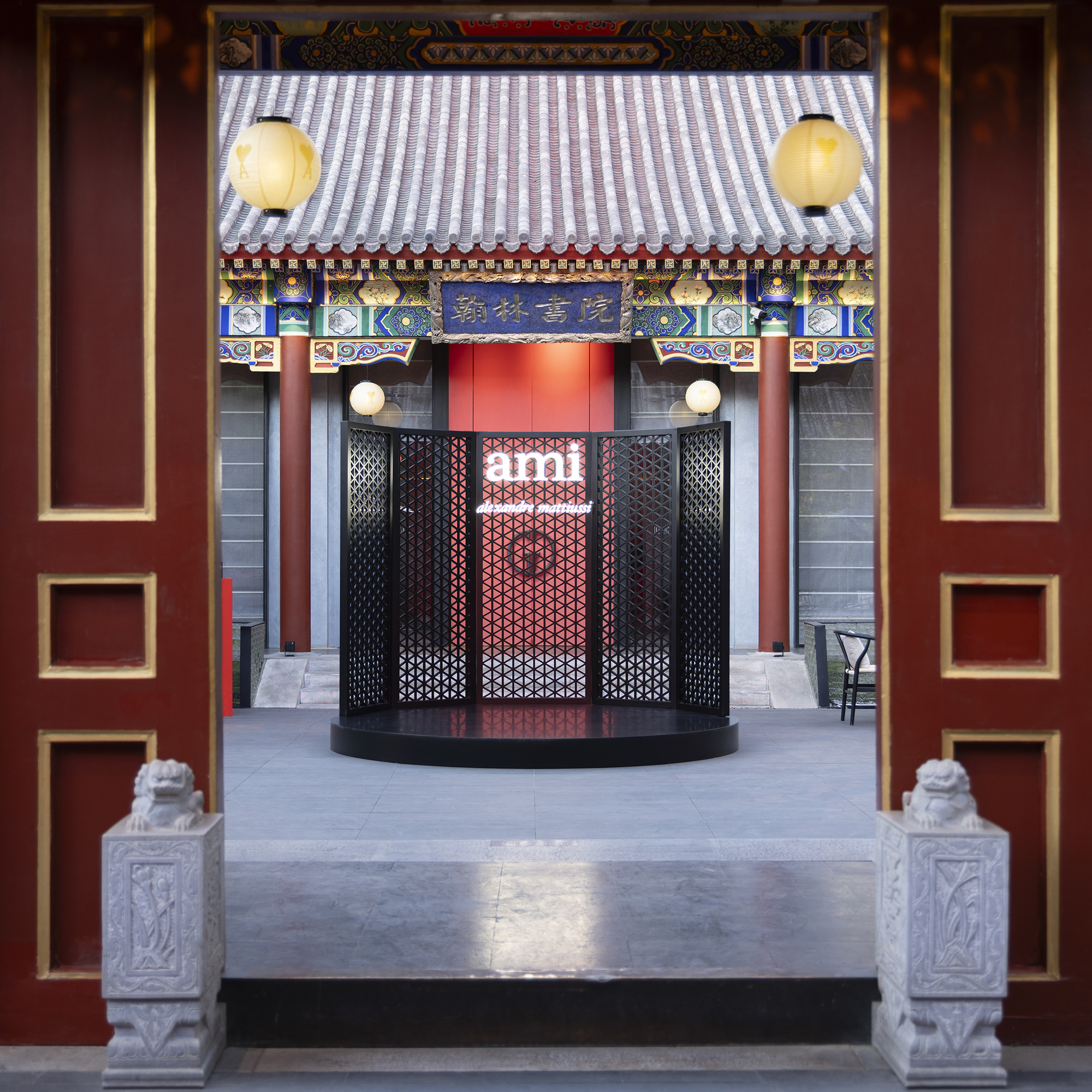
Before the end of the year, AMI will open two new flagship stores in mainland China, located in Suzhou and Guangzhou. Maquin revealed that both stores would integrate important local elements: fans from Suzhou and tiles from Guangzhou.
Luxeplace.com: How does the local culture of Chinese cities interact with AMI?
Camille Maquin: We are learning about the local culture of each city; this is an extraordinary ground for inspiration in our creative architectural process.
Luxeplace.com: What are AMI’s core markets in China, and what are the future expansion plans?
Camille Maquin: Shanghai, Beijing, and Chengdu are our first markets in mainland China. Over the past few years, we have built lasting relationships with local consumers.
We have also made new friends in other cities, like Hangzhou, Qingdao, and Chongqing.
In terms of store footprint, we still have room for growth. But we will focus on the most meaningful projects for the brand, image, and business-wise. Southern China is a region where we know the brand is very much expected in the future.

The newly opened AMI boutique in Hangzhou’s MixC mall in August this year
AMI was founded in Paris at the beginning of 2011 and entered the Chinese market five years later.
In 2021, AMI received a controlling investment from Sequoia Capital China, becoming its first international acquisition project.
Currently, AMI has about 700 stores in 123 countries, with 23 in China.
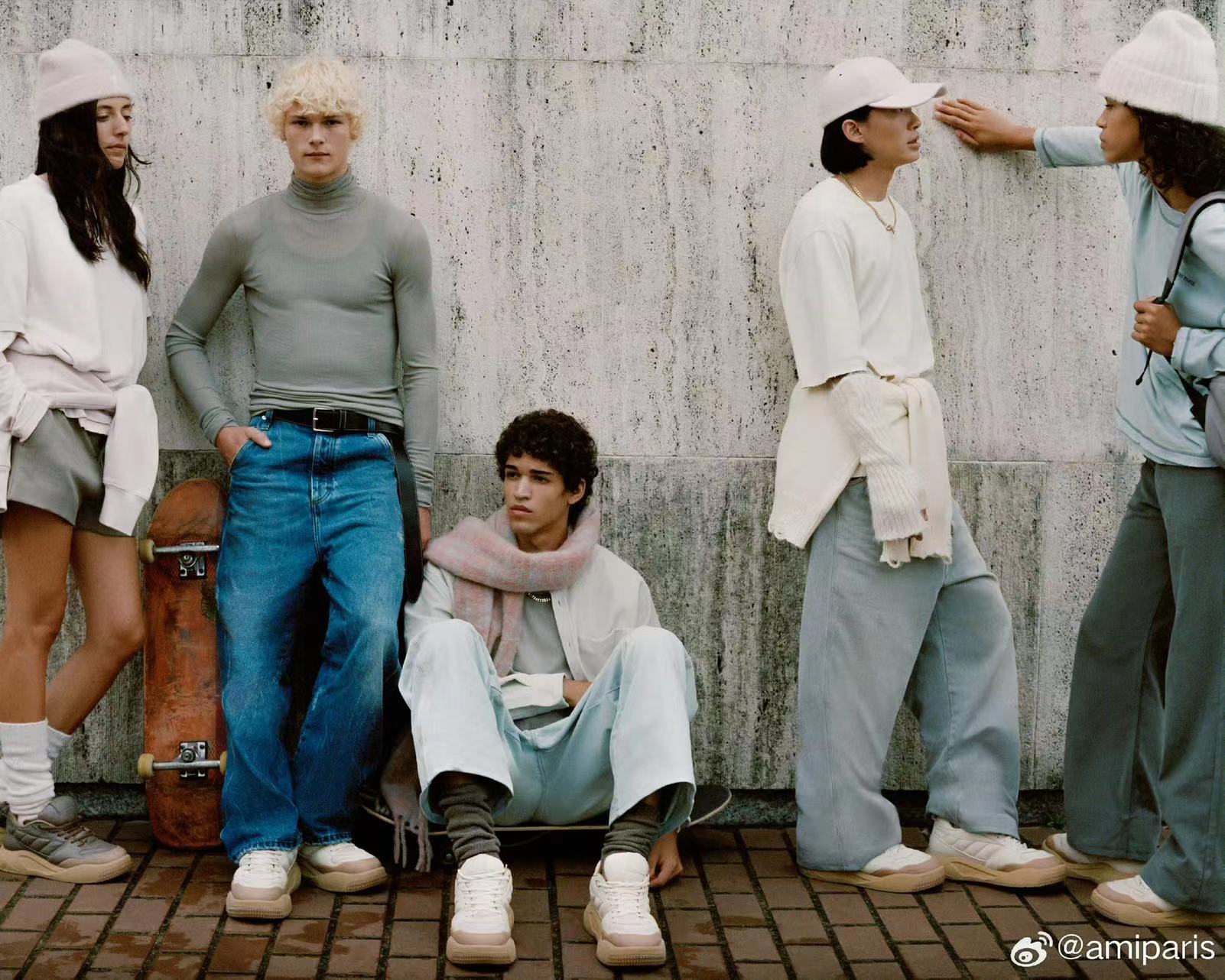
The new AMI streetwear selected series
| Image Credit: Courtesy of AMI
丨Reporter: Jin Daixi
| Editor: Zhu Ruoyu

